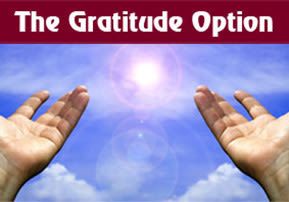
The Gratitude Option
By complaining, people perpetuate their own suffering. If they would try emuna and gratitude, their lives would take a 180-degree turn for the better…

No Such Thing as Bad, Part 4
Just a few days ago, I received a phone call from a very distraught individual in the USA who was two months behind in his rent. You’re talking about a figure to the tune of $4000. He and his wife together only make about $8000 a month. I asked him why his rent is so high. He told me that houses within walking  distance of the synagogue all cost the same thing. If he moves out of the neighborhood, he won’t be able to pray in synagogue on Shabbat and holidays. Now, the landlord was threatening to evict the couple if they don’t come up with the rent in 48 hours.
distance of the synagogue all cost the same thing. If he moves out of the neighborhood, he won’t be able to pray in synagogue on Shabbat and holidays. Now, the landlord was threatening to evict the couple if they don’t come up with the rent in 48 hours.
 distance of the synagogue all cost the same thing. If he moves out of the neighborhood, he won’t be able to pray in synagogue on Shabbat and holidays. Now, the landlord was threatening to evict the couple if they don’t come up with the rent in 48 hours.
distance of the synagogue all cost the same thing. If he moves out of the neighborhood, he won’t be able to pray in synagogue on Shabbat and holidays. Now, the landlord was threatening to evict the couple if they don’t come up with the rent in 48 hours.I told this person to thank Hashem. He thought I was crazy. He said to me angrily, “It’s easy for you to talk – you’re not about to be evicted!” Little did he know that a few hours earlier, I was faced with the most difficult test of faith that I experienced in the last three years. I myself had just come back from the field where I was thanking Hashem. It didn’t take long for me to find out that my own seemingly arduous circumstance was a gift from Hashem to get me to do something beneficial that I never would have initiated on my own. I also told this young man that I didn’t write The Trail to Tranquility because I’ve been licking chocolate ice-cream cones all my life.
Anyway, he put his brains aside and started thanking Hashem even though at first, there was no connection between his capability of understanding and the words he was saying. “Hashem, whatever You do is for the best and I thank You! If you want me to be a part of the religious community, that’s fine! And, if I get evicted and have to move elsewhere, that’s Your will and so that’s fine too! I’m doing the best I can to make a living, so if You want me to remain here within walking distance of the shul, You’ll have to help me. You know what’s best, Hashem!”
The young man talked to Hashem like this in his own backyard for a full three hours. The next day, he received $4000 in cash from the wonderful community’s rabbi and benevolent aid society. The young man never felt so close to Hashem in his life that during the three hours when he was thanking Hashem.
We don’t have to believe that there’s no bad in the world; all we have to do is open our eyes of emuna and know that there’s no bad in the world. Like Rav Shalom sings, we don’t have to understand anything – we only have to believe that everything is for the best! Lo mayvin klum, rak maamin shehakol letova…
Rav Shalom says that if you believe, then you thank Hashem. If you don’t thank Hashem, it’s a sign that you don’t believe. In that respect, ingratitude is heresy. There is therefore no bad in the world. How? Everything Hashem does is good. If you believe that something is bad, then you must believe that it comes from somewhere other than Hashem. Anybody that believes that there’s anything exclusive of Hashem is a heretic, for the first principle of the Jewish faith is that we believe that Hashem is the Creator and Director of the world that did, does, and will do everything. Since Hashem does only good, then there’s no bad in the world.
So, even if it doesn’t come natural to you, thank Hashem for your troubles. That way, Hashem will also help you in ways that defy nature. Rav Shalom always says that if you haven’t seen miracles today, it’s because you haven’t yet thanked Hashem. By crying and complaining, people perpetuate their own suffering. If they tried emuna and gratitude, their lives would take a 180-degree turn for the better.
Rebbe Nachman explains that Hashem’s countenance is His mercy. Hashem’s back is stern judgment. So, when we see mercy in what Hashem’s doing, we see the light of Hashem’s countenance. When we think that Hashem is doing something bad, He turns His back on us and we end up seeing stern judgments.
People make three types of mistakes when something seemingly bad happens to them: Either they blame themselves, or they blame others, or they blame the forces of nature. All three types of mistakes are heresy, in all three instances, he doesn’t see Hashem. All a person’s suffering in the world is the result of his not seeing Hashem, because everything truly comes from Hashem and there’s subsequently no bad in the world. Rebbe Natan emphasizes that if the people of Israel would thank Hashem for everything that happens to them, the exile would end and the Geula, the full redemption of our people would happen right away.
Rebbe Nachman says emphatically that when a person knows that everything that happens to him is for the very best, then life becomes a paradise on earth.
As soon as a person believes that Hashem is good and merciful, Hashem’s compassion is trebled. Just say thank you, and you’ll see big miracles. Whenever you have difficulties, setbacks, or stressful challenges, thank Hashem. When you feel down and unsuccessful, thank Hashem. When you thank Hashem for a setback or a failure, then that failure becomes a preparatory step for an intimate success. When you thank Hashem, you never feel tired or helpless.
Let’s not misunderstand: there are two types of mindsets that we need to live by, both of which are true. We must never confuse the two. The first is our a priori mindset, the way we think before we do something. Before we set out to do something, we must do our utmost to conduct ourselves according to the laws of Torah and do our very best to succeed. We proceed with the knowledge that Hashem gives us free choice to do good or otherwise.
On the other hand, after we do something, we have to shift gears into our second type of mindset, what we might call the post facto mindset. Once something is over and done, we must know that the outcome is the result of Hashem’s will. This mindset saves us untold emotional wear and tear and prevents us from becoming bipolar. We don’t become elated and arrogant when we succeed, because we know that our success comes from Hashem. Conversely, we don’t fall into depression when we fail and we refrain from persecuting ourselves or blaming others, for we know that Hashem willed that we fall.
At this point, people ask me, “What, Hashem made me do a transgression?” The answer is yes. Hashem gives us setbacks because He wants us to make teshuva and he doesn’t want us to think that we’ve already attained perfection.
Once again, don’t confuse the two mindsets. Don’t say before you do something that you’re not responsible, because Hashem will make you succeed or fail as He wishes. You must do your best. Yet, after the fact, don’t blame and persecute yourself if you fall, just thank Hashem for the setback for it is surely a growth opportunity.
Rebbe Nachman teaches us that as long as our souls are entrapped in a flesh-and-blood mortal body, we can’t truly understand the compatibility between the two mindsets and the apparent contradiction between our free choice and Hashem’s will that governs and preordains everything. This resembles the prohibition of milk and meat – each component is permissible, but as soon as you mix the two, they’re not kosher. In like manner, we look at the two different mindsets separately: before we do something, we focus on our total free choice to do everything in our power to do good. After the fact, we realize that everything is Hashem’s will. If we fail, it’s because Hashem loves us and He wants to teach us a lesson in humility, or teshuva, or not to take anything for granted. Yet, we accept everything that Hashem does with love and we thank Him profusely. Our job is to thank Hashem for whatever happens in our lives, realizing that everything is for the very best.
Once we believe that everything is best and we thank Hashem, afterwards we are allowed to ask Hashem to show us how our setback, failure, or difficulty in life is for the best. It’s amazing to see how Hashem then illuminates our brains and lets us understand how everything is for the very best. First we thank Hashem for what we don’t understand, and we internalize the emuna that there’s no bad in the world. Eventually, Hashem expands our mental capacity to the extent that we know that there’s no bad in the world.
There’s a well-known song that we sing every holiday, Vesamchta bechagecha – you shall rejoice in your holidays. Rav Shalom sings all year long, Vesamchta bechelkecha – you shall rejoice with your lot in life. Being happy with our lot in life is the best barometer of emuna there is.
When we thank Hashem and internalize the fact that there’s no bad in the world, we’ll certainly merit the best blessings of material and spiritual abundance, the coming of Mashiach and the in-gathering of the exiles and rebuilding of our Holy Temple in Jerusalem, speedily in our days, amen.



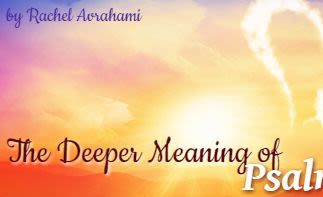
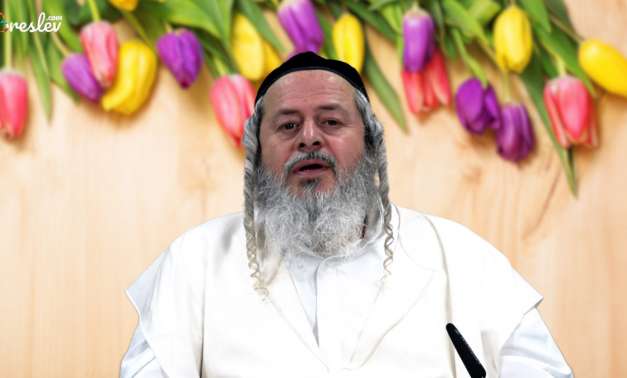
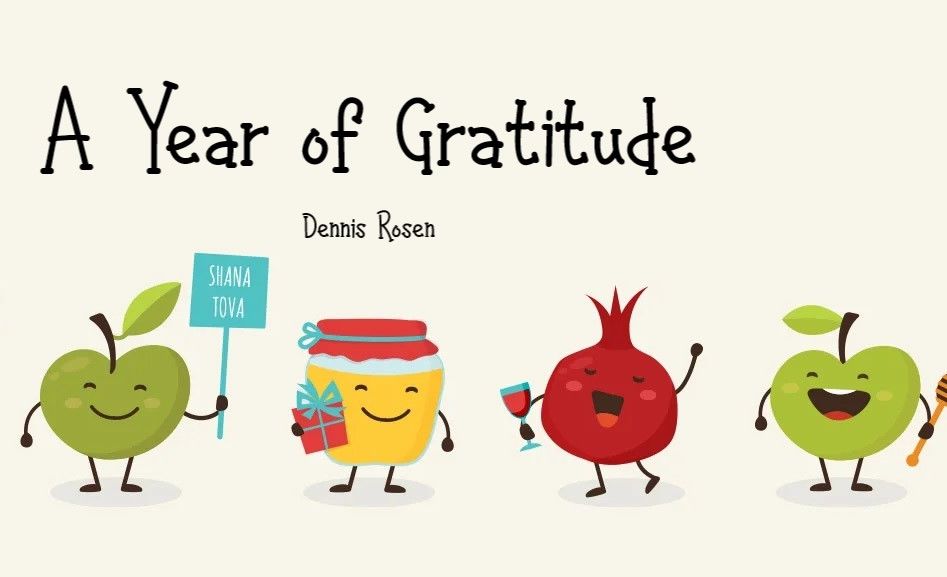
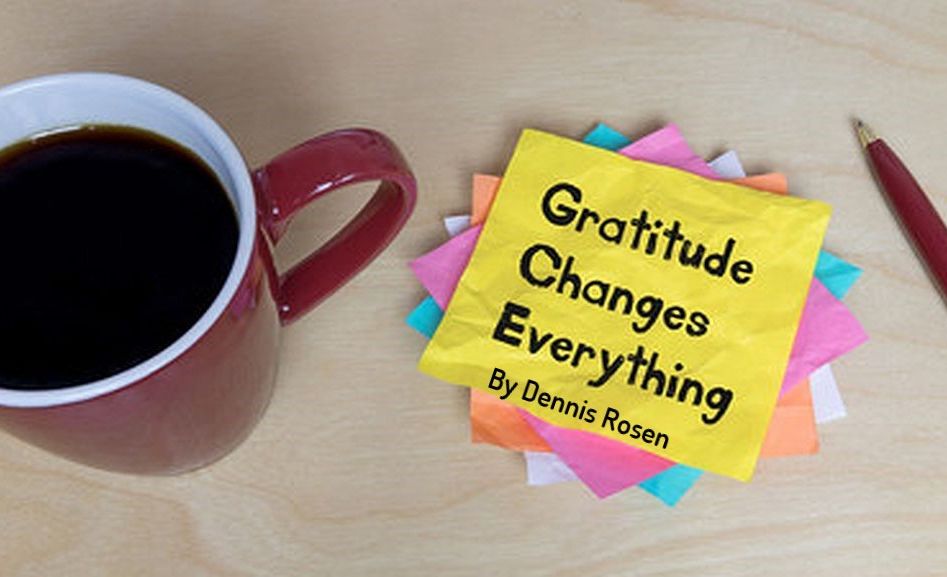





Tell us what you think!
Thank you for your comment!
It will be published after approval by the Editor.